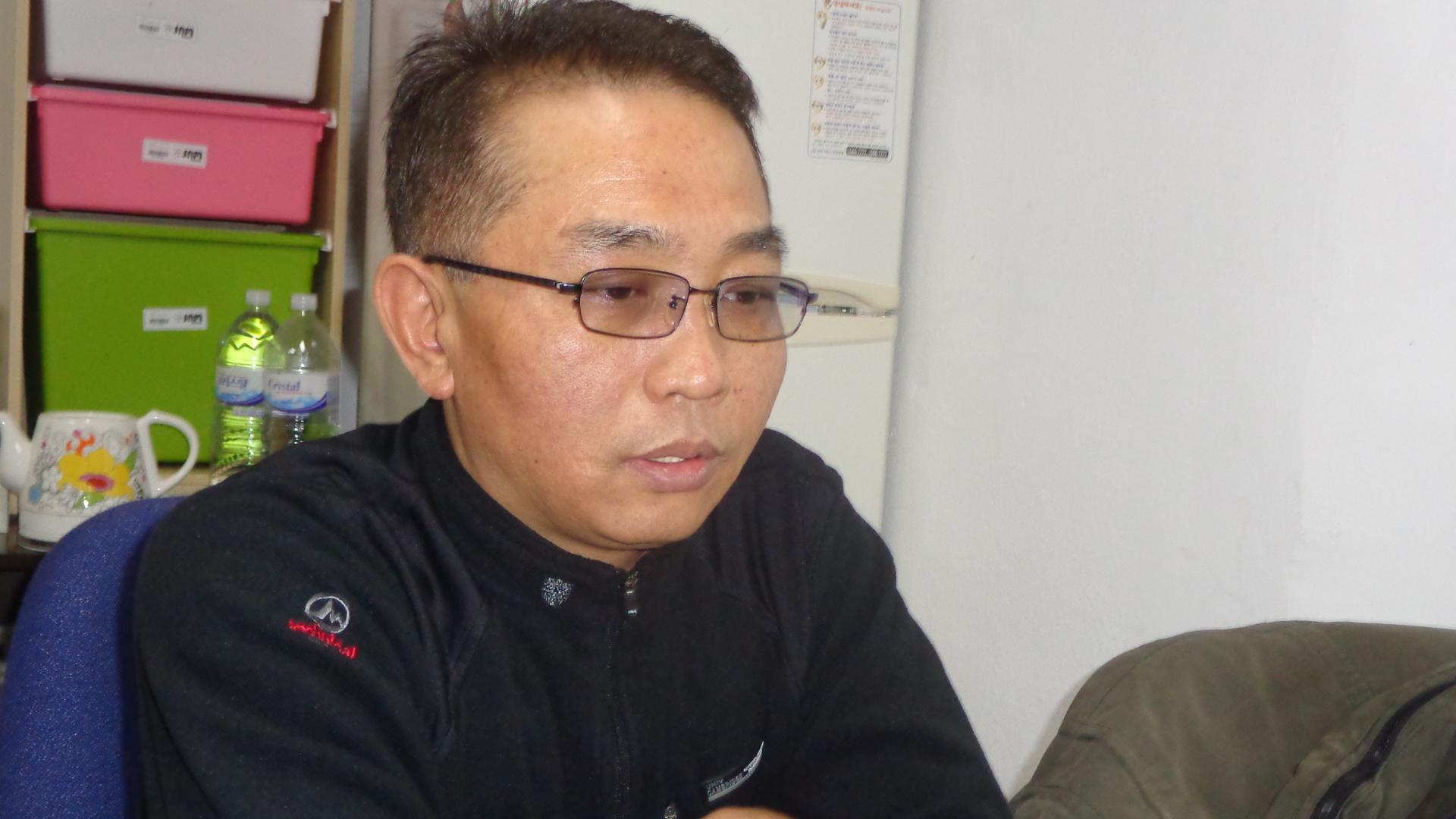After escaping to South Korea, some defectors now want to return north
Defector Son Jeong-hun wants to return to North Korea.
Since Son Jeong-hun defected from North Korea in 2002, he has helped other North Koreans escape and resettle in South Korea. That’s why so many people were surprised when he announced earlier this year that he wants to go home.
"No one had ever asked to re-defect to North Korea before,” Son says. “The government said it's illegal; there's no way to return."
Son, who's 47, wants to go home because he's ill. He says his liver is failing and he wants to see his family in Pyongyang again before he dies.
He's also broke. Son couldn't pay back a loan and he lost his apartment and most of his belongings. Now, he says he regrets coming to South Korea and claims he's not the only one.
"I'm not making this up. Eighty out of 100 defectors say they'd go back to North Korea to be with their families if it weren't for the punishment they'd receive there,” Son says. “They'd go, even if it meant they'd only be able to eat corn porridge."
Since going public with his request to re-defect, Son says he's been put on an overseas travel ban. But other refugees have made it home.
Over the past year, a handful of one-time defectors have shown up on North Korean TV. They say the South Korean government lured them with promises of money, but in the end, leaving the motherland turned out to be a horrible mistake.
Some refugee advocates say around 100 North Koreans have quietly slipped back across the border. South Korea's Ministry of Unification confirms that 13 defectors have returned (although three have since come back to the South.)
Those who opted to leave might have been persuaded by Pyongyang to return, says Koo Byoung-sam, head of the Unification Ministry's resettlement program. He says they might feel nostalgic and miss their families and some just might not have adjusted to life here.
For many defectors, not adjusting means no jobs, failed businesses, and growing debt.
Kim Suk-woo, a former Unification Ministry official, says many go bankrupt after paying back the brokers that brought them and their families to South Korea.
"They have to pay $2,000 to those brokers,” Kim says. “Even though they receive around $40,000 from the [South Korean] government, they have to pay the down payment for their apartment or some things like that, and then… [little] money remains in their hands"
Kim says the government should increase its resettlement stipend. He adds that other defectors can help. too. They could serve as positive examples for newly-arrived refugees, to show it's possible to be successful in South Korea.
Kim Eun-ju could be one of those role models. I met the 27-year-old defector in a café near Seoul's Sogang University, where she's in her final semester. She is also an author, with a new memoir out. Kim, who defected as a teenager, says she wouldn't call herself a success just yet, but she's on her way. And she says she couldn't have done it alone.
"To make it in South Korea, we shouldn't feel ashamed to ask for help,” Kim says. “I received a lot of assistance from others and it got me where I am now. There is bias against North Koreans here, but there are many people who want to help, too."
Kim says defectors who think they can escape their problems by going back are mistaken.
But Son Jeong-hun, the refugee who wants to return to Pyongyang, says he has fewer people to turn to in South Korea than ever before.
"Other defectors in the community are worried about speaking with me,” Son says. “The South Korean police are monitoring me and also contacting anyone who's spoken to me. My friends don't want to be investigated. My social life is pretty bad right now."
Son says that makes life in South Korea a lot like life in North Korea.
Every day, reporters and producers at The World are hard at work bringing you human-centered news from across the globe. But we can’t do it without you. We need your support to ensure we can continue this work for another year.
Make a gift today, and you’ll help us unlock a matching gift of $67,000!
